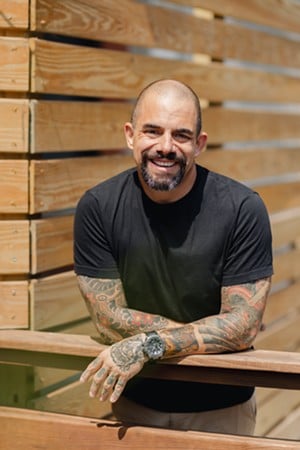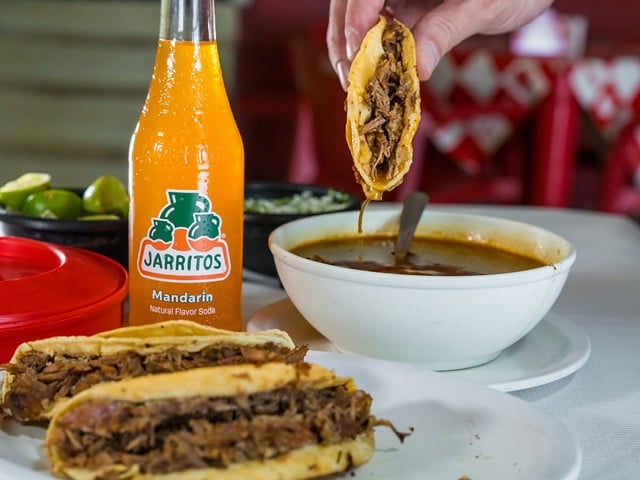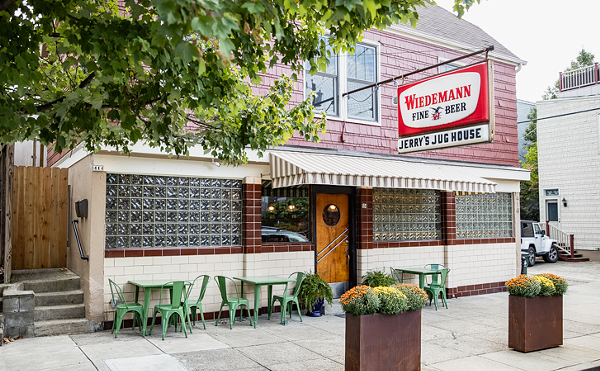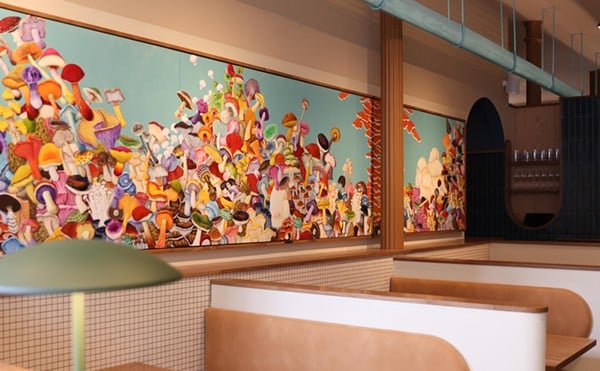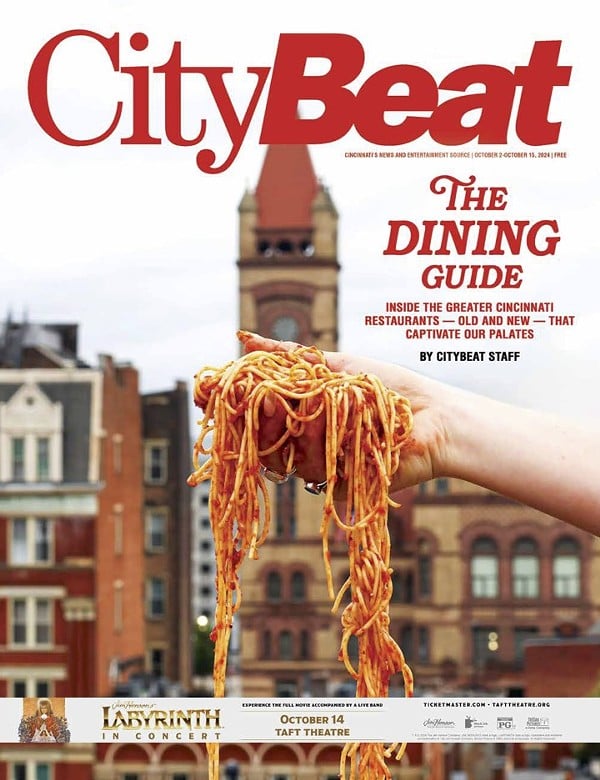Cincinnati has earned the title of “foodie city.” We already had “beer city,” “pork city” and “chili city” (the last of which isn’t always approved by self-proclaimed foodies), and it was only natural that earning the moniker would come along next.
In a sea of new restaurants (over 50 opened in Cincinnati in the first three quarters of 2023 alone), bars, pubs, coffee shops, delis and old standards, how can a place distinguish itself? And most importantly, distinguish a menu? There are only so many ways to reinvent the wheel (or a hamachi collar).
CityBeat spoke with local restaurateurs José Salazar and Jacob Trevino about this process, and how they are able to stand out from the white-chef-coated crowd.
Trevino, founder and CEO of Gorilla Cinema Presents, says that it all depends on the concept.
“For Lonely Pine, we knew we wanted to create a no-frills, affordable steakhouse, so the menu revolved around steakhouse classics,” he says. “For Video Archive, we had the concept for a Tarantino speakeasy, so the hard part was creating a $5 milkshake. For Tokyo Kitty, the concept of a Neo-Futuristic karaoke bar came first, and the cocktails came later, becoming more Tiki-Club inspired based on the design of the space.”
Trevino also owns and/or co-manages The Overlook Lodge, Covington Yard, Oakley Greens and The Highball, which will be opening this fall.
Salazar, who is chef and owner of Mita’s, Safi Wine Bar and co-owner of Daylily Deli, also considers the “vibe” of a new idea the first and main thing to consider. “The food, honestly, as someone who’s been cooking and designing menus…for so long, that is the easiest part,” he says.
Salazar finalizes the menu last, usually, though ideas might and do pop up throughout the process of opening a new restaurant. “It sort of comes together in pieces,” he adds.
For his latest concept, Safi Wine Bar, the menu is very small, with about 10 items total. Most are small plates, with the exception of the lamb.
As the owner of many restaurants over the years, Salazar sometimes reinvents his own ideas. After 10 years of operation at Salazar, his namesake restaurant closed back at the beginning of the year in order for a new and exciting concept to take its place. “Salazar 2.0” will move to a larger location, but the original spot at 1401 Republic Street in Over-the-Rhine will take on a new identity.
Like Salazar, Trevino has told CityBeat before that some of his concepts are going to be “flipped every five years,” meaning Trevino makes more menus than most, something he does alone.
“Typically, I create the first cocktail menu solo for each concept,” he says. “I'm creating a sandbox and an identity for the menu, and then, hopefully, you bring on some amazing bartenders to add to the story. It’s a bit like being in a band where I might write the music, and then someone else comes in with the lyrics or puts their own spin on the idea we’ve created with the space.”
While Trevino usually makes his cocktail menus alone, Salazar works with a collaborator, usually whoever is running that kitchen. “Whoever’s in that role is going to be somebody that I lean on,” he says.
Salazar also has a corporate chef, Andy Hiner, who also gives input and helps with logistics and sourcing.
In a world where “trends” rule, especially food trends (see: the recent craze of cucumber salads), Trevino doesn’t try to follow them. To him, food and drink creation is a part of self-expression.
“Most of my inspirations come through travel or the places I have lived, so while I may pick up on trends just by being in the world and experiencing our industry, I am not actively looking online or reading, saying, ‘What are they doing in New York?’” he says. “It’s more than I haven’t seen these flavors before, or I want a cocktail to look like this, so let’s reverse engineer what it would take to create that.”
Salazar feels similarly. “Having a true affinity for something or feeling like there’s some meaning behind whatever it is that I’m doing, it has to speak to me,” he says. “It can’t just be something that I’m doing because I think it satisfies a trend.”
In Cincinnati, and in most cities, it can be hard to differentiate your menu and concept. But restaurateurs and chefs tend to learn from each other and even draw inspiration from each other, which Trevino says can be difficult.
“It is hard to be 100% original anymore,” he says. “The human palate only likes so many combinations of flavors, and at this point in our collective culinary journey, it would be hard to believe that you have come up with something that no one has done.
“However, I think that is part of the fun of this industry. I think it comes back to being true to yourself and your vision.”
While Salazar doesn’t check the menus of other restaurants to draw inspiration, he does go out to eat (not as much as he’d like to, he adds), so he knows what the scene is like. “There’s going to be some overlap regardless,” he says. “None of us are reinventing anything or inventing anything.”
Early in his career, Trevino was driven by making every item innovative and new. But he actually got the best advice of his career from the other voice in this story: José Salazar.
“I pitched him foie gras bourbon with cherry compote,” Trevino says. “His only question was, ‘Is it good?’ Innovative and different is great, but if no one drinks it, or they can’t connect with the ingredients, it doesn’t matter.”
Salazar expands on this sentiment. “Some chefs make a mistake about leading their decisions with their ego,” he shares. “At the end of the day…it’s about what people want. If I love it and everyone else doesn’t, then it doesn’t really matter.”
Both Salazar and Trevino have been in the bar and restaurant industry for decades, and both know how to craft a good menu. The two of them own and operate some of the most popular restaurants and bars in Cincinnati. In a city teeming with food, nightlife and cocktails, they have managed to stand out without settling in, which Salazar knows is important.
“I think one of the biggest things that holds people back is feeling like they’ve got it all figured out and they don’t make any mistakes,” Salazar says. “If you go into any day with that mentality that you’ve kind of won the game, you are not going to grow.”
For more information about José Salazar and his restaurants, visit instagram.com/chefjosesalazar. For more information about Jacob Trevino and Gorilla Cinema Presents, visit gorillacinemapresents.com.


